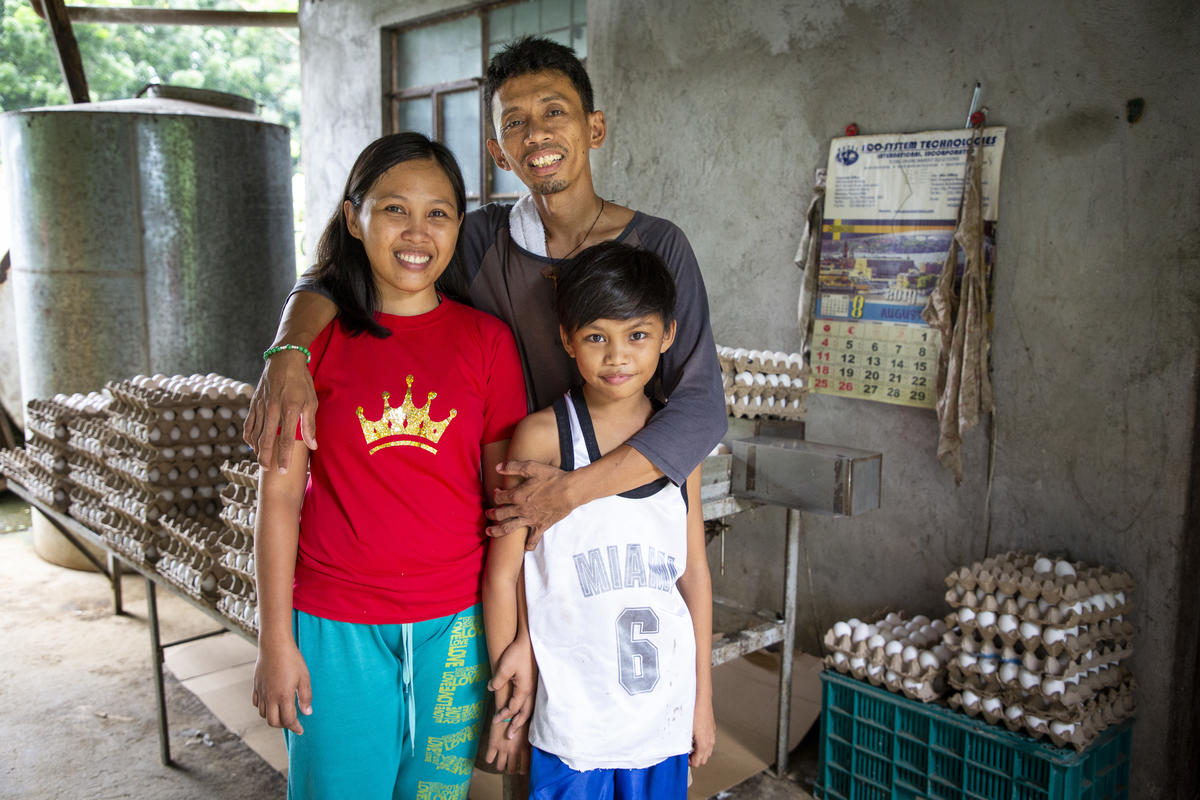Iranian businessman becomes first refugee to get Philippine citizenship
Iranian businessman becomes first refugee to get Philippine citizenship

MANILA, Philippines, September 25 (UNHCR) - A milestone in refugee protection in the Philippines was reached earlier this week when an Iranian refugee was sworn in as a Philippine citizen.
"I feel great. It is like a burden has been lifted after all these years," 55-year-old Buick Bahador said after becoming the first refugee to be granted Philippine citizenship under national judicial proceedings. Foreigners can also be granted citizenship by Congress, but this is only granted on exceptional occasions.
"This is another demonstration of the Philippines' long-standing commitment to refugee protection," added Rico Salcedo, who attended the September 18 ceremony as representative of the UNHCR office in Manila. The swearing-in took place at the regional court in Angeles City, Pampanga province.
Bahador, who hails originally from Teheran, described the Philippines "as my home" and thanked the Filipino people for accepting him and allowing him to find protection in the country.
In line with Philippine law, the swearing-in came two years after the approval of his naturalisation petition. Criteria for citizenship include established residency, proof of local integration and evidence of good moral character.
Bahador was the first of about 40 refugees - mainly from Africa, Sri Lanka and the Middle East - whom UNHCR is helping to gain citizenship. Most, like Bahador, are married to Philippine nationals and have been living in the country for several years. Two more Iranians are expected to be sworn in next year.
Bahador, who lives with his Filipina wife and son in Pampanga province, fled Iran in 1979 shortly before the fall of the Shah. He converted to Catholicism and moved to the Philippines after marrying his wife, whom he had met in Teheran.
A former member of the Iranian army, Bahadur was granted refugee status by UNHCR in 1981. He completed a course in civil engineering after arriving in the Philippines and is now involved in the retail trade, construction and real estate.
He is also involved in community activities and, in recognition of this work, was given the key to the municipality of Mabalacat, where he lives.
The Philippines is marking the 25th anniversary of its accession to the 1951 Refugee Convention and its 1967 protocol. The country has in the past four decades hosted some 500,000 refugees - mostly from Cambodia, Laos and Viet Nam - and has actively cooperated in finding humanitarian solutions for them through resettlement and voluntary repatriation. Camps and processing centres for the Indochinese refugees were closed in 1996.
There are currently less than 100 refugees in the Philippines, mainly from Africa, the Middle East and South Asia, and the country is trying to find durable solutions for them.
UNHCR has supported the development of the asylum system in the Philippines and is undertaking joint capacity-building and advocacy activities with various government agencies. Refugees in the Philippines are integrated in various urban locations and able to exercise social and economic rights.









